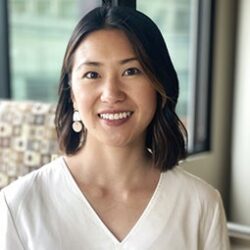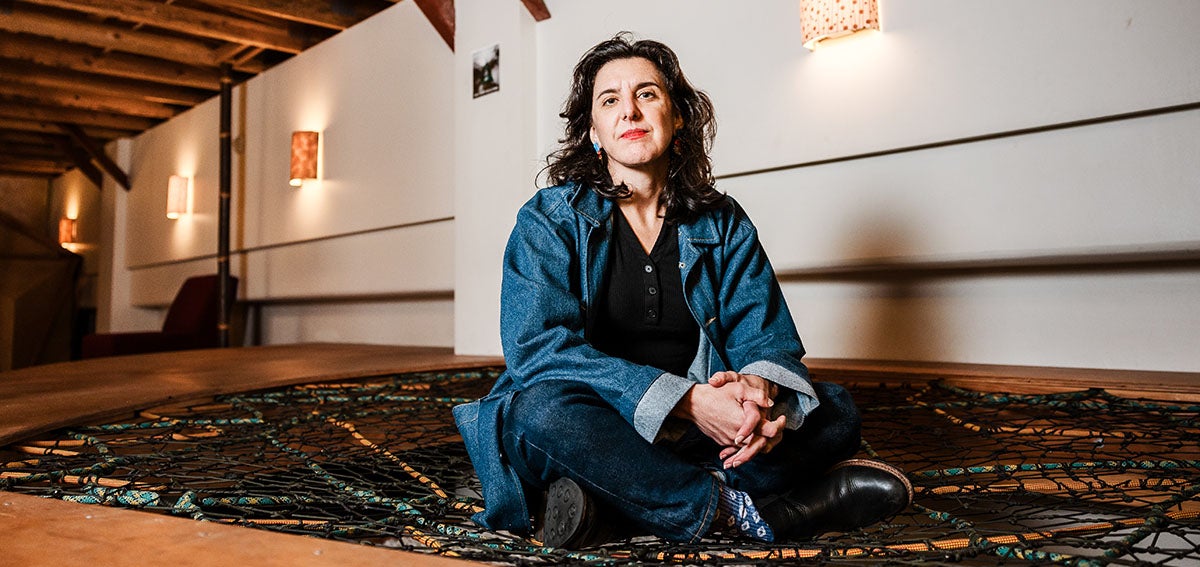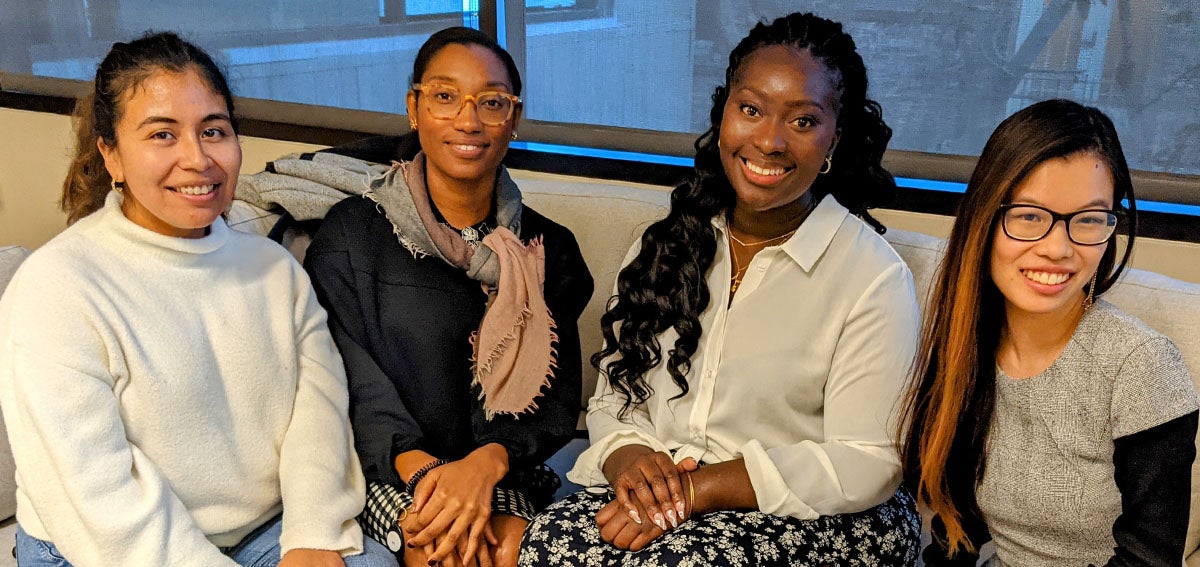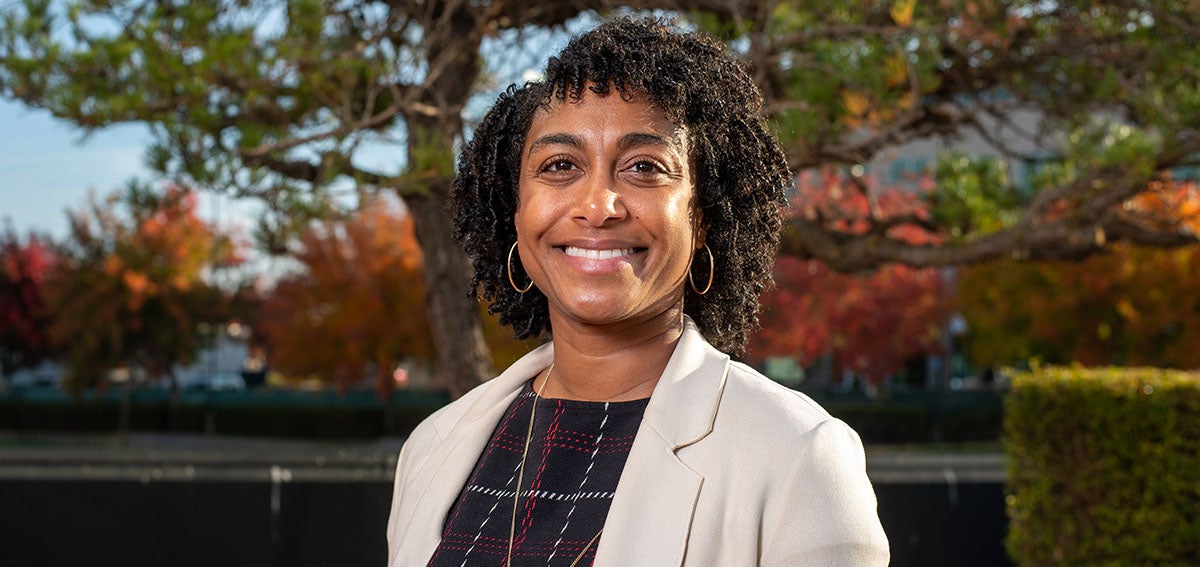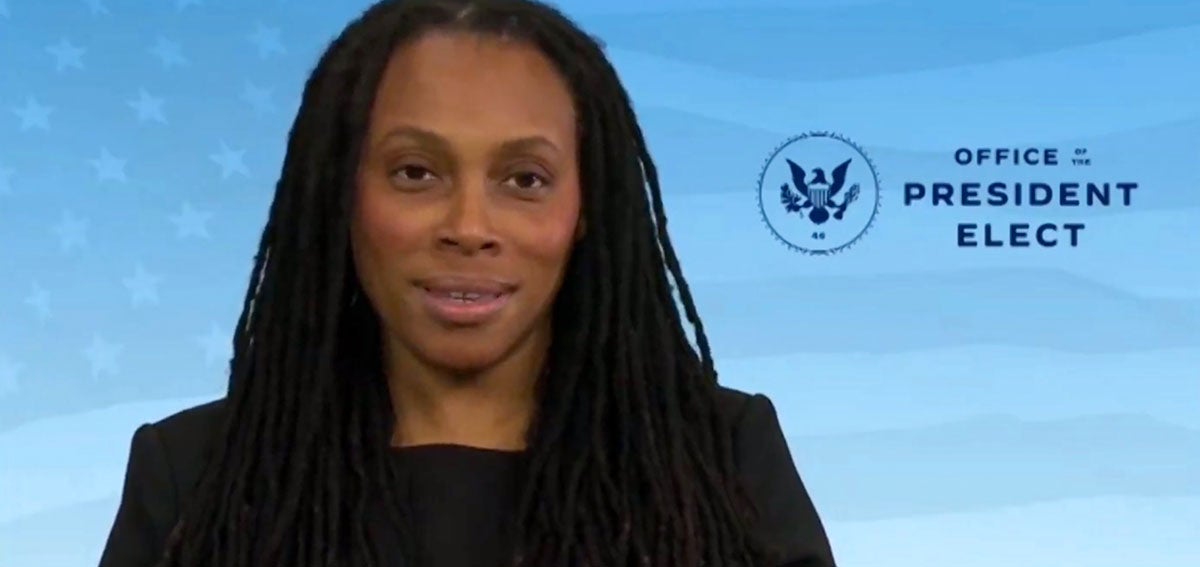
Marcella Nunez-Smith, MD, MHS, developed an interest in medicine at an early age. Her mother, a retired nursing professor, filled their home in the US Virgin Islands with medical books and invited Nunez-Smith to read anything she could reach on the bookshelf. “I started early on learning medicine and nursing texts and became fascinated with the human body and biology,” Nunez-Smith told Roni Caryn Rabin in the New York Times.

These interests became personal when Nunez-Smith’s father, who was in his 40s, suffered a stroke. Lacking adequate access to health care on the island of St. Thomas, the stroke caused partial paralysis and slurred speech. Had preventive care been accessible, a doctor might have diagnosed and treated him for hypertension, which caused the stroke. With prompt access to advanced acute care, he might have made a fuller recovery from the stroke. “My memories are of a father who had to live life with this daily reminder of how we had failed in terms of our health care,” Nunez-Smith told Rabin.
Nunez-Smith, 45, an accomplished physician, scientist, and professor, will carry these memories into her new role as chair of President Joe Biden’s COVID-19 equity task force. “[I had] an amazing, remarkable childhood” in St. Thomas, she told journalist Chloe Schama in Vogue. “As I got older, I became more aware of the structural realities [of] living in a [US] territory when it came to questions of health care and access. . . . [Hearing from neighbors] how hard it was to get and maintain care later informed some of my research questions and interests.”
From Island Schools to Harvard and Yale
Nunez-Smith graduated from high school at age 16 and left the Virgin Islands to attend Swarthmore College, where she studied biological anthropology and psychology. She went on to attend medical school at Jefferson Medical College and complete her residency training at Harvard Medical School’s Brigham and Women’s Hospital, and earn a Master of Health Science degree at Yale University.
Today Nunez-Smith holds many positions at the Yale School of Medicine, including separate associate professorships in internal medicine, in epidemiology, and in public health; associate dean of health equity research; and founding director of the Equity Research and Innovation Center. She also established a research collaborative funded by the National Institutes of Health to study chronic disease in four Eastern Caribbean islands, including her birthplace, the Virgin Islands.
“She is a national gem,” her colleague Harlan Krumholz, MD, MS, a professor of medicine at Yale, told Rabin. “This is a person who spends her days thinking about how we can make health care more equitable and what interventions can address these disparities.”
Vivek Murthy, MD, who was appointed US Surgeon General by President Barack Obama and was nominated to return to that role by President Biden, knew Nunez-Smith’s work from his time at Yale and Brigham and Women’s Hospital. In late 2020, as Biden’s transition team prepared him to take over the pandemic response, Murthy recommended that Biden meet Nunez-Smith. They hit it off.
“Nunez-Smith isn’t a fixture on the national policy conference circuit. She wasn’t active on the Biden campaign,” Joanne Kenen wrote in Politico. “She talks in science, not sound bites. She has spent a lot more time partnering with community organizations in New Haven, including serving on Connecticut’s coronavirus reopening panel, than on TV. And Biden liked all that.”
Creating Incentives for People to Get Tested
Last November, shortly after major news networks called the presidential election for Biden, then president-elect Biden and vice president elect Kamala Harris released their COVID-19 plan and announced a COVID-19 Advisory Council. (The council disbanded upon Biden’s inauguration on January 20.) Murthy, Nunez-Smith, and David Kessler, MD, a UCSF professor of pediatrics, epidemiology, and biostatistics, served as cochairs.
About a month later, Biden announced that he had chosen Nunez-Smith to lead a new task force on racial equity and the pandemic. “The timing signaled that racial and ethnic disparities would be a major priority, rather than an afterthought, for his administration,” Ariana Eunjung Cha wrote in the Washington Post.
Although the new administration has released few details about Nunez-Smith’s role, she will likely be heavily involved in priority plans to boost COVID-19 testing and distribute 100 million doses of the vaccine in Biden’s first 100 days.
“She’s not sitting in her ivory tower. . . . She is out on the front lines. She sees patients, and she’s seen friends and colleagues suffer with COVID-19.”
—Christina Ciociola, Community Foundation for Greater New Haven
“People are very worried about surprise bills for seeking care, and this is very different from other countries, where cost is not a consideration,” Nunez-Smith told Rabin. “How do we make sure there are positive incentives for coming in and getting tested and getting care?”
She has advocated for locating testing sites to serve communities with fewer economic and health care resources. Testing sites must provide walk-up services, she said, because drive-through sites can only be used by people who have cars. And some testing sites should provide services outside of traditional work hours so that frontline essential workers can get tested in the evenings or on weekends.
Tailoring Messages, Choosing Messengers
With the COVID-19 vaccine rollout already way behind schedule, Nunez-Smith will also work to ensure that minority communities are prioritized in the Biden administration’s vaccine distribution plan.
A December COVID-19 vaccine poll conducted by KFF found that although vaccine willingness had increased across Black, Latinx, and White respondents since September, Black adults were still the least likely to say they would definitely or probably get the vaccine.
Nunez-Smith wants to ease such concerns with tailored messages delivered by the right messengers. “Not every person or group that’s skeptical of vaccines has their skepticism rooted in the same things, not even for every person of color who’s skeptical,” she told Maria Aspan in Fortune. “We also have to make sure that trusted messengers have the answers to the questions they will be asked, rather than being silent because they don’t know the answers — because somebody will be happy to fill that void with misinformation.”
She cited health care professionals, local leaders, community liaisons, and influencers (for younger generations) as trusted figures who could effectively deliver accurate vaccine information.
Widening the Field of View in Equity Work
When the pandemic ends, the COVID-19 equity task force will become the permanent Infectious Disease Racial Disparities Task Force. Nunez-Smith, a self-proclaimed data nerd, told Aspan that the Biden administration’s long-term work to achieve health equity must include the systematic collection of data on racial and ethnic health disparities. “If data is a metric of value, then we signal who we value and who we don’t by who gets counted and who doesn’t,” she said. “I worry about, who is invisible in the data? Who doesn’t have a champion?”
Eventually, Nunez-Smith hopes to drive the administration’s equity work beyond health and health care. “We have to have conversations about housing stability and food security and educational equity, and pathways to economic opportunities and promise,” she told Rabin.
Health equity experts have celebrated Nunez-Smith’s appointment. “It matters to have a position that is approximately Cabinet-level and have the ear of and regular contact with the executive,” Alonda Nelson, PhD, president of the Social Science Research Council and former colleague of Nunez-Smith’s at Yale, told Lev Facher in Stat.
“She’s not sitting in her ivory tower,” Christina Ciociola, MSW, MPH, senior vice president for grantmaking and strategy at the Community Foundation for Greater New Haven, where Nunez-Smith serves as vice chair of the board of directors, told Rabin. “She is out on the front lines. She sees patients, and she’s seen friends and colleagues suffer with [COVID-19].”
Once COVID-19 is under control, what should Dr. Nunez-Smith prioritize in her broader equity role? Email me.
Authors & Contributors
